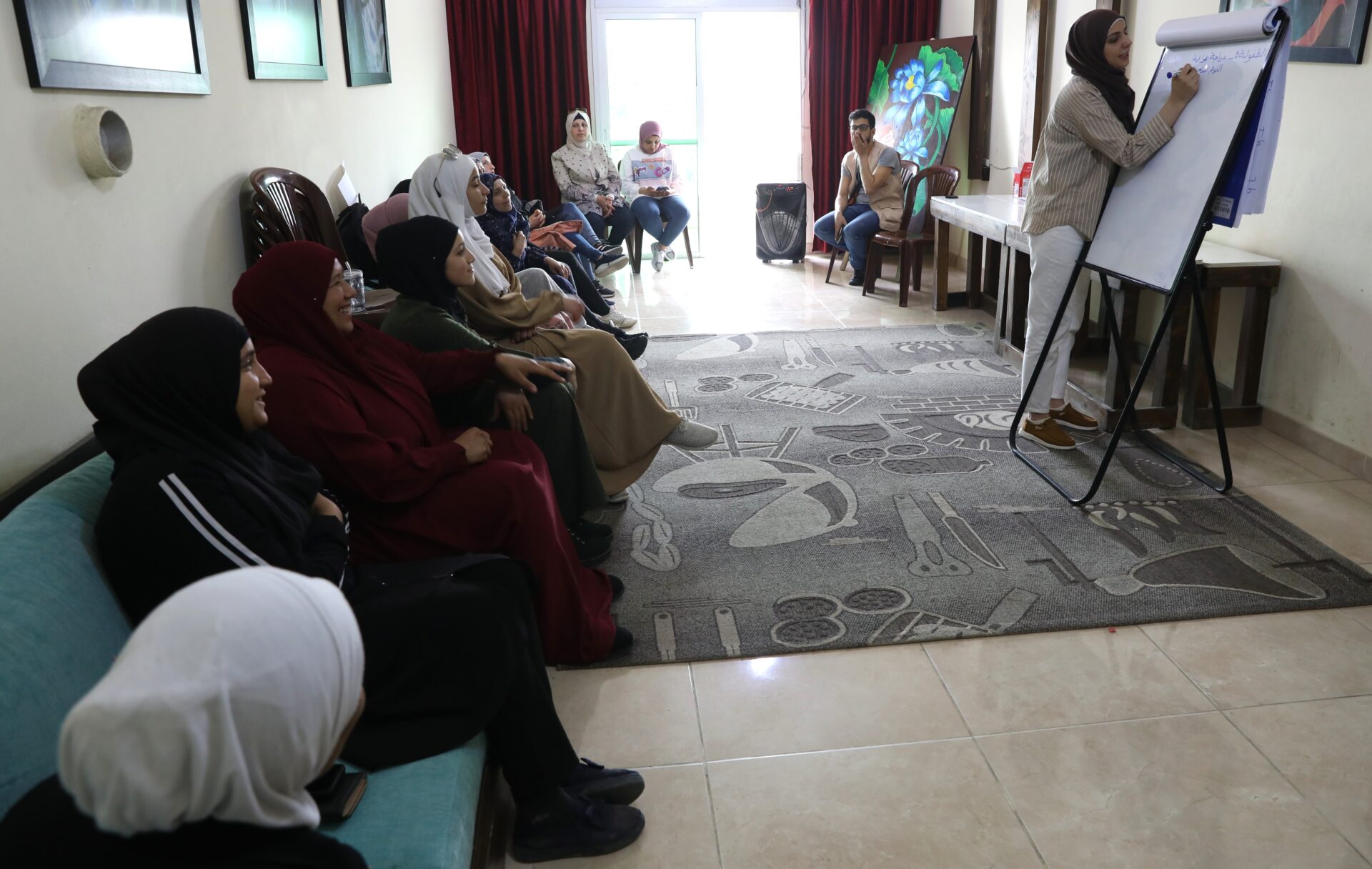Disclaimer: This website is under development. Content and features may change, and some information may be incomplete or inaccurate. Thank you for your patience.

From the heart of the city of Qusayr, in Homs Governorate, Aya* (34 years old) came out laden with stories of war and the burden of loss. After losing her husband during the conflict in Syria, she was forced to leave her homeland with her young daughter (11 years old), with a diagnosed heart condition, to begin a harsh refugee journey.
Aya* says with regret, her voice soft yet heavy with the burden of memory, “I arrived in Lebanon in June 2015. I didn’t know anyone. I was afraid of everyone. I was scared someone might drag me back down, and I started my life from scratch, homeless”. Her circumstances were unforgiving, particularly after spending two months of detention in Syria, during which she was stripped of her civil papers, only to be released in exchange for a sum of money.
Despite holding a nursing degree, Aya* was unable to work as a nurse due to the complications of obtaining a work permit as a refugee. She began working in the agricultural plains to support her sick daughter and her sister’s children, and despite the challenging situation, she tried to hide her pain from them.
In a watershed moment, a friend told her about training offered in Beqaa by the “Light House Peace” initiative within the “Fostering Refugee Leadership” project, under the Civil Society Enablement unit at “Basmeh & Zeitooneh”. Aya* says: “The first time we entered here, it felt very strange, so different from the society we live in.” Despite the doubts of some, like her neighbor who said: “Why do you need psychological support? What are you even going to do there?”, Aya* decided to give herself a new chance and take a step toward healing.
Despite her initial fear of returning to painful memories, Aya* began attending the sessions, and she was able, with the help of mental health specialists, to face her past with courage. “I don’t want to go back to the past, I can’t believe I’m even forgetting it”, Aya* says, adding, “The specialists helped us, supported us, and gave us advice on how to deal with despair and lack of trust in people”.
She underwent training on how to protect herself from harassment, and she began to regain her self-confidence. She eagerly awaited each training session. Over time, Aya* became able to speak about her experiences and demand her rights.
During the training sessions, Aya* also learned professional skills, including chocolate design, project funding, and product marketing. She says: “I found myself in a place where I was no longer lost. I knew what I wanted and how I wanted to work”.
Participants in the training gained a deeper understanding of how to launch their projects and choose suitable locations. This transformation was not only professional, but also personal, as Aya’s* communication with her daughter improved; she learned how to talk to her and answer her questions with confidence and calm.
Proudly, Aya* shares how she used to fear confronting school administration when her daughter faced any mistreatment, but now she stands up to defend her and claim her rights. “We came from a place of marginalization, and I don’t want to go back to marginalizing my daughter”.
After everything she went through, Aya* now says: “This project means so much to me, If I go back to Syria, I’m not afraid of change. I will start something new, and I will share the knowledge I gained with the people around me”, She adds: “I wish the initiative the best, and I encourage all women to register, not to fear customs and traditions, and never giving up”.
She concludes with her heartfelt words: “A person keeps learning until the last moment of their life. We can’t change the past, but we can change the future”.
Like many women, Aya* has proven that hope and transformation are possible and that strength lies in the ability to face challenges and heal from them.
Written by: Ibrahim Al Housseiny
*Names have been changed to protect identities